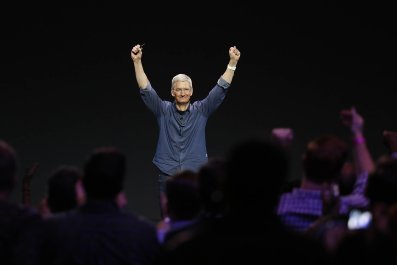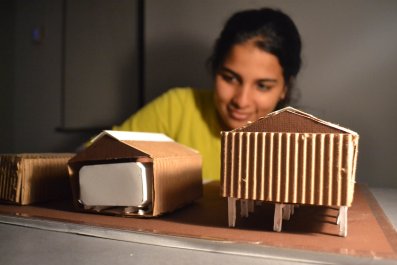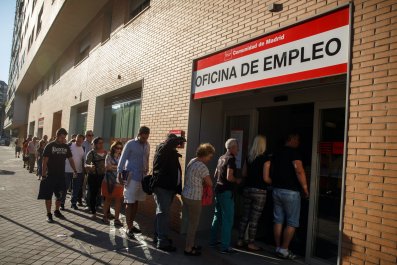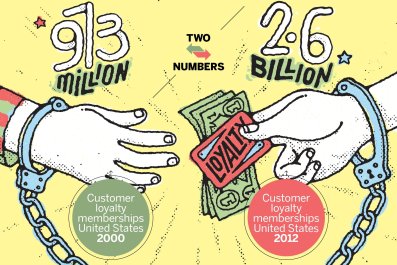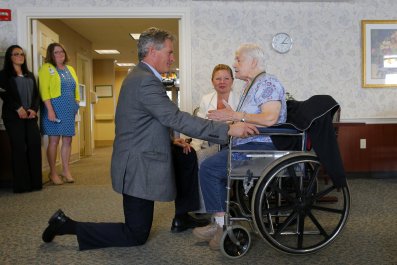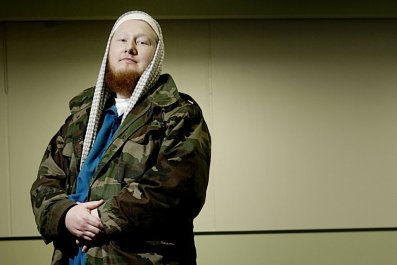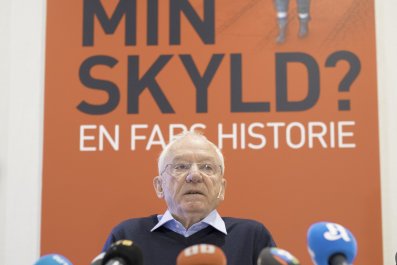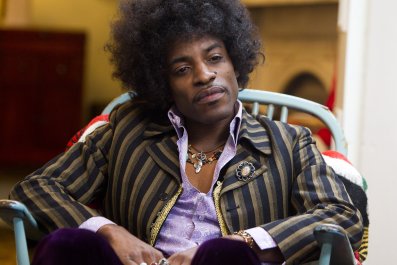"The fact that we are making many people happy is important," says Houzz CEO Adi Tatarko from a stage in the San Jose Conference Center. It is the second day of an event entitled Techmanity (a name only a branding expert could love) and the crowd has been rapt as she describes the rapid rise ($2 billion valuation) of her company, "the leading platform of home improvement and design." It is just the kind of success story many of the young strivers in the audience have come to hear, but the question from the audience is of a more altruistic nature. After being handed a microphone and congratulating her on her success a long-haired young man asks, "How can this be leveraged to help humanity?"
She should have seen it coming. The event's founder, Tom Hayes, a former marketing exec at HP and Marvell, described the conference thusly: "Techmanity is for industry leaders who see business as a way to change the world for the better – innovators who imagine technology not just for profit but to improve the human condition." Long before HBO's Silicon Valley mocked the language (if not the impulse) of the industry by having every company claim they are "making the world a better place," the real SV had some serious image problem: Too few women and minorities visible, too much money changing the landscape, not enough wealth redistributed to anyone but car and pizza makers. In his 2013 New Yorker piece about the tech industry, George Packer wrote that beside the baby billionaires and millionaires here, "there are also record numbers of poor people, and the past two years have seen a twenty-per-cent rise in homelessness, largely because of the soaring cost of housing. After decades in which the country has become less and less equal, Silicon Valley is one of the most unequal places in America."
Getting from homelessness to home improvement is never easy and over several days a variety of speakers try and bridge that gap. Legendary venture capitalist Tim Draper has successfully invested in everything from Skype to Tesla; he has a big personality and in this setting he stands out like a vacation home salesman at an Aspergers Meet-Up. The day Fast Company's Jeff Chu interviews him he is wearing a European suit and fancy tie (compared to Chu's bowtie and no-socks style) and he generalizes about the triumph of the new and innovative over the old and inefficient: email killed the post office, he says, as Tesla will kill Detroit. (Though you might want to take the city's pulse now.) "Wow!" he shouts to the assembled. "What industries do we need to change now?"
Draper wrote a song about himself called "The Risk Master" which he will sing at the drop of a hat ("He is the risk master/Lives fast, drives faster…"). Despite the dismal ratio of female-to-male workers in the industry (about 70-30 according to a recent Bloomberg News report), the paucity of women on boards (7% according to Forbes) and the lack of women CEO's, Draper insists that all women have to do is start their own companies, and if he likes them, he might invest. (He once did a striptease, taking off an article of clothing for each company he had invested in that was run by a woman.) He uses the example of Theranos, a blood-sampling company that has made its founder, Elizabeth Holmes, 30, the third youngest billionaire on Forbes list of the 400 richest Americans (Draper was an early investor). "I see women in the audience and I say, 'Come on, baby!'"
Draper provides scholarships for women (and men) to attend his Draper University of Superheroes, formerly the Draper University of Heroes. ("Heroes are used in history; superheroes are used in the future!") There he and other made men impart tech, marketing and social media skills – as well as "real survival training, both urban and rural." And that's not all! It was Draper who came up with the idea of splitting California into six states as the ultimate act of consumer revolt: "It's operating as a monopoly. They charge as much as they want and provide this crappy service. Visit any government office," he challenges the crowd. "The equipment, the people–they're living in the eighties!"
Of course most of the attendees were born after the eighties so they'll have to take his word for it. He ends his jeremiad with an assault on the state legislature. "The people in Sacramento all live there," he says. "They make a decision in an isolated way." Instead of fixing the broken school system, for instance (once the nation's best, now rivalling Mississippi for the bottom rung) he says they are busy banning plastic bags and Big Gulp drinks.
Too much soda is not a rich-person's problem generally – and neither is it top-of-the-list for most of the homeless. Rose Broome, the founder of HandUp, follows Draper onstage to little applause and with no interlocutor; she uses PowerPoint to tell her company's story. She starts with an image of people in Calcutta foraging through the dump for food and then contrasts that with the image of a local dumpster diver. "People are living like this in our communities," she says. After passing one too many people sleeping on the street, Broome had the idea of donating directly to people in need via the web. "You can press a button for a cab or GrubHub," she says; why not to help someone?
HandUp is not a service provider but a platform that allows people to share with people in need, who tell their stories on the site. She showed a short video of Rodney, a "wheelchair dancer" who had been laid off by a local dance troupe and was soon carrying all his possessions in one bag. His need: a laptop, to find work. His story was touching and many in the audience even stopped texting to listen when he spoke of his experience living in San Francisco's Tenderloin. "I was around people who'd been on the streets most of their live," he said. "There was a real humbleness about it."
After Broome's presentation Chu returned with Catherine Hoke, "an awesome woman CEO" of the sort Draper was touting. Draper is a supporter of Hoke's Defy Ventures, a business that trains former convicts to work in the business world. "I never thought I would work with incarcerated people," says the stylishly clad Hoke and she recalls her first visit to a prison in Texas, as part of a Christian outreach program, saying, "I thought I was going to a zoo then." Many of the prisoners she met were "not that dissimilar from entrepreneurs," she tells Chu. Some had been drug dealers, with strong sales technique, though they "could use help on their risk-management skills." In four years Defy Ventures has worked with over 400 people and launched 71 legal businesses.
Hoke prefers to call the men she works with "Entrepreneurs in Training" (or EITs) and has learned from some of her mistakes. When Chu asks her about a controversy involving a similar group she started, the Prison Entrepreneurship Program, she says she "made some decisions I regret," having had relationships with four ex-cons in the program in the wake of her divorce. She was forced out of PEP and attempted suicide – "which is why I'm such a big fan of second chances.
"I was very honest about it," she says of the scandal. "I was forced to resign and I have to share it all the time. 'What if you were known for the worst thing you've done?'" was something she used to say about the former prisoners she worked with. The question is no longer rhetorical.
Hoke's admission prompts Chu to share about an uncle who was incarcerated ("Chinese people don't talk about things like that in their family"), adding that he wishes there had been something like Defy when his uncle was drifting around after prison.
Then a few of Hoke's EIT's join them on stage (Jose Vasquez, who used to make two to three thousand a day selling heroin now helps guys into the program) along with Draper, who calls them the real risk masters, before adding, "There were a lot of marginal calls where I could have ended up with these guys in prison."
The next day finds a different difficult transition under discussion on the dais. "That's a vulnerable time before people have had their coffee," says Blue Bottle CEO James Freeman when asked why he doesn't clutter his shops up with CD's and knickknacks like some coffee dispensaries: He doesn't want to disturb his customers.
Freeman is here discussing, along with Dry Bar founders Alli Webb and Michael Landan, "The Secret to Building a Cult Brand." Webb (whose company now has 37 locations, none of which will wash or cut your hair) has also resisted the call to clutter. "We're the In 'n' Out Burger of blow-outs," says Landan.
These cult leaders are followed by California's Lieutenant Governor (and former SF mayor) Gavin Newsom, who aside from Tony Goldwyn's fictional President Fitz Grant on Scandal, probably has the best hair in politics. Newsom, well-spoken and intelligent, may be held back by his looks and locks (remember what a haircut did for John Edwards!) but, like Draper, he has come more to bury Caesar and his wayback machine.
Starting with the Department of Motor Vehicles (everyone's favorite target), he paints a picture of a bureaucracy oblivious to the tech sector powering the state's economy and its most forward-looking business. "We've been conditioned by Amazon [for instant service]," Newsom told the crowd, "but we're standing in line to get a reservation at the DMV. They still have forms in triplicate!"
Again, this is an concept many in the crowd might have trouble grasping. Far more electrifying is the fiasco of trying to unify the state's 58 county court systems (aka, the California Court Management System). "As envisioned a decade ago," the New York Times wrote, "the system would allow anyone in any courthouse to get real-time information on just about any case in the state."
In 2004, Newsom says, the overhaul was predicted to cost $260 million; after spending $330 million tax dollars by 2013, there were seven courts online and finishing the job by 2015, it's predicted, will cost $1.9 billion. "These aren't even headlines," he says. "These are the norm."
Newsom has been banging this drum for a while; he made many of the same points in a speech at the #Innovate technology conference last year and reiterates some of the applause lines in his book, Citizenville. You won't find many people defending the DMV – or President Obama, either, another one of Newsom's targets. "The bottom-up candidate became the top-down president, and 'Yes We Can' became 'Yes He Can,'" he says, mocking the president's disregard for the greatest concern of those who participated in his first virtual town hall meeting: the legalization of marijuana.
But even Newsom's boss, Gov. Jerry Brown, has mixed feelings about that one. "How many people can get stoned and still have a great state, or a great nation?" he said on Meet the Press earlier this year. "The world's pretty dangerous, very competitive."
In the lobby outside, there seems to be a disconnect between some of the vendors and the conference's stated mission, however fuzzy. One woman is pitching an app called "What's Launching Now?" which purports to tell the user just that, and a forlorn looking young man in an ice cube costume is promoting a venture called Icebreaker. If everyone in this room was using Icebreaker, he explains, I would know by just looking at my phone where they went to school and how many languages they spoke.
The kind of thing you would learn by talking to someone? That's the point, it seems, and I note that his costume looks more like a melting ice cube, or the Tivo logo. "Icebreaker," his handout tells me, is solving the "Y Generation Social Dilemma… Awkward conversation starters leads to frustrating networking experience."
Maybe he should meet The Risk Master?




